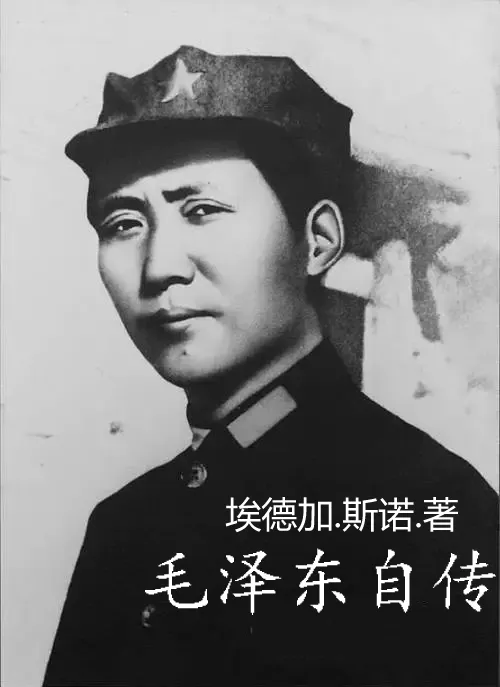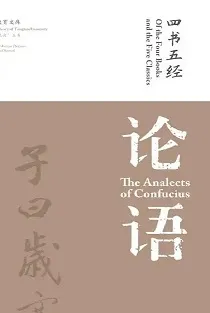1817 is the year which Louis XVIII., with a certain royal assurance which was not wanting in pride, entitled the twenty-second of his reign. It is the year in which M. Bruguiere de Sorsum was celebrated. All the hairdressers' shops, hoping for powder and the return of the royal bird, were besmeared with azure and decked with fleurs-de-lys. It was the candid time at which Count Lynch sat every Sunday as church-warden in the church-warden's pew of Saint-Germain-des-Pres, in his costume of a peer of France, with his red ribbon and his long nose and the majesty of profile peculiar to a man who has performed a brilliant action. The brilliant action performed by M. Lynch was this: being mayor of Bordeaux, on the 12th of March, 1814, he had surrendered the city a little too promptly to M. the Duke d'Angouleme. Hence his peerage. In 1817 fashion swallowed up little boys of from four to six years of age in vast caps of morocco leather with ear-tabs resembling Esquimaux mitres. The French army was dressed in white, after the mode of the Austrian; the regiments were called legions; instead of numbers they bore the names of departments; Napoleon was at St. Helena; and since England refused him green cloth, he was having his old coats turned. In 1817 Pelligrini sang; Mademoiselle Bigottini danced; Potier reigned; Odry did not yet exist. Madame Saqui had succeeded to Forioso. There were still Prussians in France. M. Delalot was a personage. Legitimacy had just asserted itself by cutting off the hand, then the head, of Pleignier, of Carbonneau, and of Tolleron. The Prince de Talleyrand, grand chamberlain, and the Abbe Louis, appointed minister of finance, laughed as they looked at each other, with the laugh of the two augurs; both of them had celebrated, on the 14th of July, 1790, the mass of federation in the Champ de Mars; Talleyrand had said it as bishop, Louis had served it in the capacity of deacon. In 1817, in the side-alleys of this same Champ de Mars, two great cylinders of wood might have been seen lying in the rain, rotting amid the grass, painted blue, with traces of eagles and bees, from which the gilding was falling. These were the columns which two years before had upheld the Emperor's platform in the Champ de Mai. They were blackened here and there with the scorches of the bivouac of Austrians encamped near Gros-Caillou. Two or three of these columns had disappeared in these bivouac fires, and had warmed the large hands of the Imperial troops. The Field of May had this remarkable point: that it had been held in the month of June and in the Field of March (Mars). In this year, 1817, two things were popular: the Voltaire-Touquet and the snuff-box a la Charter. The most recent Parisian sensation was the crime of Dautun, who had thrown his brother's head into the fountain of the Flower-Market.
They had begun to feel anxious at the Naval Department, on account of the lack of news from that fatal frigate, The Medusa, which was destined to cover Chaumareix with infamy and Gericault with glory. Colonel Selves was going to Egypt to become Soliman-Pasha. The palace of Thermes, in the Rue de La Harpe, served as a shop for a cooper. On the platform of the octagonal tower of the Hotel de Cluny, the little shed of boards, which had served as an observatory to Messier, the naval astronomer under Louis XVI., was still to be seen. The Duchesse de Duras read to three or four friends her unpublished Ourika, in her boudoir furnished by X. in sky-blue satin. The N's were scratched off the Louvre. The bridge of Austerlitz had abdicated, and was entitled the bridge of the King's Garden [du Jardin du Roi], a double enigma, which disguised the bridge of Austerlitz and the Jardin des Plantes at one stroke. Louis XVIII., much preoccupied while annotating Horace with the corner of his finger-nail, heroes who have become emperors, and makers of wooden shoes who have become dauphins, had two anxieties,--Napoleon and Mathurin Bruneau. The French Academy had given for its prize subject, The Happiness procured through Study. M. Bellart was officially eloquent. In his shadow could be seen germinating that future advocate-general of Broe, dedicated to the sarcasms of Paul-Louis Courier. There was a false Chateaubriand, named Marchangy, in the interim, until there should be a false Marchangy, named d'Arlincourt. Claire d'Albe and Malek-Adel were masterpieces; Madame Cottin was proclaimed the chief writer of the epoch. The Institute had the academician, Napoleon Bonaparte, stricken from its list of members. A royal ordinance erected Angouleme into a naval school; for the Duc d'Angouleme, being lord high admiral, it was evident that the city of Angouleme had all the qualities of a seaport; otherwise the monarchical principle would have received a wound. In the Council of Ministers the question was agitated whether vignettes representing slack-rope performances, which adorned Franconi's advertising posters, and which attracted throngs of street urchins, should be tolerated. M. Paer, the author of Agnese, a good sort of fellow, with a square face and a wart on his cheek, directed the little private concerts of the Marquise de Sasenaye in the Rue Ville l'Eveque. All the young girls were singing the Hermit of Saint-Avelle, with words by Edmond Geraud. The Yellow Dwarf was transferred into Mirror. The Cafe Lemblin stood up for the Emperor, against the Cafe Valois, which upheld the Bourbons. The Duc de Berri, already surveyed from the shadow by Louvel, had just been married to a princess of Sicily. Madame de Stael had died a year previously. The body-guard hissed Mademoiselle Mars. The grand newspapers were all very small. Their form was restricted, but their liberty was great. The Constitutionnel was constitutional. La Minerve called Chateaubriand Chateaubriant. That t made the good middle-class people laugh heartily at the expense of the great writer. In journals which sold themselves, prostituted journalists, insulted the exiles of 1815. David had no longer any talent, Arnault had no longer any wit, Carnot was no longer honest, Soult had won no battles; it is true that Napoleon had no longer any genius. No one is ignorant of the fact that letters sent to an exile by post very rarely reached him, as the police made it their religious duty to intercept them. This is no new fact; Descartes complained of it in his exile. Now David, having, in a Belgian publication, shown some displeasure at not receiving letters which had been written to him, it struck the royalist journals as amusing; and they derided the prescribed man well on this occasion. What separated two men more than an abyss was to say, the regicides, or to say the voters; to say the enemies, or to say the allies; to say Napoleon, or to say Buonaparte. All sensible people were agreed that the era of revolution had been closed forever by King Louis XVIII., surnamed "The Immortal Author of the Charter." On the platform of the Pont-Neuf, the word Redivivus was carved on the pedestal that awaited the statue of Henry IV. M. Piet, in the Rue Therese, No. 4, was making the rough draft of his privy assembly to consolidate the monarchy. The leaders of the Right said at grave conjunctures, "We must write to Bacot." MM. Canuel, O'Mahoney, and De Chappedelaine were preparing the sketch, to some extent with Monsieur's approval, of what was to become later on "The Conspiracy of the Bord de l'Eau"--of the waterside. L'Epingle Noire was already plotting in his own quarter. Delaverderie was conferring with Trogoff. M. Decazes, who was liberal to a degree, reigned. Chateaubriand stood every morning at his window at No. 27 Rue Saint-Dominique, clad in footed trousers, and slippers, with a madras kerchief knotted over his gray hair, with his eyes fixed on a mirror, a complete set of dentist's instruments spread out before him, cleaning his teeth, which were charming, while he dictated The Monarchy according to the Charter to M. Pilorge, his secretary. Criticism, assuming an authoritative tone, preferred Lafon to Talma. M. de Feletez signed himself A.; M. Hoffmann signed himself Z. Charles Nodier wrote Therese Aubert. Divorce was abolished. Lyceums called themselves colleges. The collegians, decorated on the collar with a golden fleur-de-lys, fought each other apropos of the King of Rome. The counter-police of the chateau had denounced to her Royal Highness Madame, the portrait, everywhere exhibited, of M. the Duc d'Orleans, who made a better appearance in his uniform of a colonel-general of hussars than M. the Duc de Berri, in his uniform of colonel-general of dragoons-- a serious inconvenience. The city of Paris was having the dome of the Invalides regilded at its own expense. Serious men asked themselves what M. de Trinquelague would do on such or such an occasion; M. Clausel de Montals differed on divers points from M. Clausel de Coussergues; M. de Salaberry was not satisfied. The comedian Picard, who belonged to the Academy, which the comedian Moliere had not been able to do, had The Two Philiberts played at the Odeon, upon whose pediment the removal of the letters still allowed THEATRE OF THE EMPRESS to be plainly read. People took part for or against Cugnet de Montarlot. Fabvier was factious; Bavoux was revolutionary. The Liberal, Pelicier, published an edition of Voltaire, with the following title: Works of Voltaire, of the French Academy. "That will attract purchasers," said the ingenious editor. The general opinion was that M. Charles Loyson would be the genius of the century; envy was beginning to gnaw at him--a sign of glory; and this verse was composed on him:--
"Even when Loyson steals, one feels that he has paws."
As Cardinal Fesch refused to resign, M. de Pins, Archbishop of Amasie, administered the diocese of Lyons. The quarrel over the valley of Dappes was begun between Switzerland and France by a memoir from Captain, afterwards General Dufour. Saint-Simon, ignored, was erecting his sublime dream. There was a celebrated Fourier at the Academy of Science, whom posterity has forgotten; and in some garret an obscure Fourier, whom the future will recall. Lord Byron was beginning to make his mark; a note to a poem by Millevoye introduced him to France in these terms: a certain Lord Baron. David d'Angers was trying to work in marble. The Abbe Caron was speaking, in terms of praise, to a private gathering of seminarists in the blind alley of Feuillantines, of an unknown priest, named Felicite-Robert, who, at a latter date, became Lamennais. A thing which smoked and clattered on the Seine with the noise of a swimming dog went and came beneath the windows of the Tuileries, from the Pont Royal to the Pont Louis XV.; it was a piece of mechanism which was not good for much; a sort of plaything, the idle dream of a dream-ridden inventor; an utopia--a steamboat. The Parisians stared indifferently at this useless thing. M. de Vaublanc, the reformer of the Institute by a coup d'etat, the distinguished author of numerous academicians, ordinances, and batches of members, after having created them, could not succeed in becoming one himself. The Faubourg Saint-Germain and the pavilion de Marsan wished to have M. Delaveau for prefect of police, on account of his piety. Dupuytren and Recamier entered into a quarrel in the amphitheatre of the School of Medicine, and threatened each other with their fists on the subject of the divinity of Jesus Christ. Cuvier, with one eye on Genesis and the other on nature, tried to please bigoted reaction by reconciling fossils with texts and by making mastodons flatter Moses.
M. Francois de Neufchateau, the praiseworthy cultivator of the memory of Parmentier, made a thousand efforts to have pomme de terre [potato] pronounced parmentiere, and succeeded therein not at all. The Abbe Gregoire, ex-bishop, ex-conventionary, ex-senator, had passed, in the royalist polemics, to the state of "Infamous Gregoire." The locution of which we have made use--passed to the state of--has been condemned as a neologism by M. Royer Collard. Under the third arch of the Pont de Jena, the new stone with which, the two years previously, the mining aperture made by Blucher to blow up the bridge had been stopped up, was still recognizable on account of its whiteness. Justice summoned to its bar a man who, on seeing the Comte d'Artois enter Notre Dame, had said aloud: "Sapristi! I regret the time when I saw Bonaparte and Talma enter the Bel Sauvage, arm in arm." A seditious utterance. Six months in prison. Traitors showed themselves unbuttoned; men who had gone over to the enemy on the eve of battle made no secret of their recompense, and strutted immodestly in the light of day, in the cynicism of riches and dignities; deserters from Ligny and Quatre-Bras, in the brazenness of their well-paid turpitude, exhibited their devotion to the monarchy in the most barefaced manner.
This is what floats up confusedly, pell-mell, for the year 1817, and is now forgotten. History neglects nearly all these particulars, and cannot do otherwise; the infinity would overwhelm it. Nevertheless, these details, which are wrongly called trivial,-- there are no trivial facts in humanity, nor little leaves in vegetation,--are useful. It is of the physiognomy of the years that the physiognomy of the centuries is composed. In this year of 1817 four young Parisians arranged "a fine farce."
一八一七是路易十八用那种目空一切的君王气魄称为他登极第二十二年①的那一年。也是布吕吉尔·德·沙松先生扬名的那一年。所有假发店老板一心希望扑粉和御鸟再出现,都刷上了天蓝色灰浆并画上了百合花。②这是蓝舒伯爵穿上法兰西世卿服装,佩着红绶带,挺着长鼻子,有着轰动一时的人物所具有的那种奇特侧影的威仪,以理事员身分每礼拜日坐在圣日耳曼·代·勃雷教堂的公凳上的承平时期。蓝舒伯爵的功绩是这样的:他在任波尔多③市长期内,一八一四年三月十二日那天,把城池献给了昂古莱姆公爵,凭这项轰轰烈烈的功勋,他就得了世卿的禄位。
①法国大革命在一七九三年推翻了君主专制,国王路易十六经国民公会判处死刑,王党奉路易十七(路易十六的儿子)为国王继承人,路易十七在一七九五年死在狱中,路易十六之弟路易十八被认为继承人,他是在一八一五年拿破仑逊位才回国登王位的,但是他不承认王室的统治是中断了的,认为他的王权应从一七九五年算起,所以一八一七年是他的统治的第二十二年。
②百合花是法国波旁王朝的标志。贵族都戴假发,并以粉扑发为美。“御鸟”是一种髻的名称。
③波尔多(Bordeaux),法国西南部滨大西洋的商业城市。拿破仑和英国争霸,封锁了大陆,商业资产阶级深感痛苦,一八一四年三月,英国军队从西班牙侵入法国南部时,他们把城池献给了敌人。昂古莱姆公爵是路易十八的侄儿,随着英国军队进入波尔多。
在一八一七年,四岁到六岁的男孩都戴一种极大的染色羊皮帽,成了风行一时的时装,帽子两旁有耳遮,颇象爱斯基摩人的高统帽。法国军队,仿奥地利式样,穿上了白军服,联队改称为驻防部队,不用番号,而冠以行省的名称。拿破仑还在圣赫勒拿岛,由于英国人不肯供应蓝呢布,他便翻穿旧衣服。在一八一七年,佩勒格利尼正歌唱,比戈第尼姑娘正跳舞,博基埃正红及一时,奥德利还没有出世。沙基夫人继福利奥佐①而起。在法国还有普鲁士人②。德拉洛先生③成了著名的人物。正统江山在斩了普勒尼埃、加尔波诺和托勒龙的手、又斩了他们的头④以后地位才宣告稳固。大臣塔列朗⑤王爷和钦命财政总长路易教士,好象两个巫师一样,相顾而笑⑥,他们两个都参加过一七九○年七月十四日在马尔斯广场举行的联邦弥撒,塔列朗以主教资格主祭,路易助祭。
①佩勒格利尼(Pellegrini),那不勒斯歌手,当时在巴黎演出。比戈第尼姑娘(Bigottini),当时的舞蹈家。博基埃(Potie),当时的喜剧演员。奥德利(Odry),喜剧演员。沙基夫人(MmeSaqui)和福利奥佐(Forioso),第一帝国时期最著名的杂技演员,走绳索者。
②占领军在一八一八年才撤离法国。
③德拉洛(Delalot,1772-1842),极端保王派,《辩论日报》的编辑。
④普勒尼埃、加尔波诺、托勒龙,秘密会社社员,因赞成处死路易十六被处死。斩手又斩首是法国对弑王者的刑罚。
⑤塔列朗(Talleyrand,1754-1838),公爵,原是拿破仑的外交大臣,一八○七年免职后勾结国外势力。一八一四年三月俄普联军攻入巴黎,塔列朗组织临时内阁,迎接路易十八回国。
⑥巫师共同作弊,彼此心里明白,所以相顾而笑。
在一八一七年,就在那马尔斯广场旁边的小路上,发现了几根蓝漆大木柱倒在雨水和乱草里腐烂,柱上的金鹰和金蜂都褪了色,只剩下一点痕迹。那些柱子是两年前开五月会议①时搭建御用礼台用的。驻扎在大石头附近的奥地利军队的露营部队已把它们烧得遍体焦痕了。其中的两三根已被那些露营部队当作柴火烧掉了,并还烘过日耳曼皇军的巨掌。五月会议有这样一个特点,那就是五月会议是六月间在马尔斯广场上举行的。在一八一七年里,有两件事是人人知道的:伏尔泰-都格事件和鼻烟壶上刻的宪章问题。巴黎最新的骇人消息是杜丹的罪案,杜丹曾把他兄弟的脑袋丢在花市的水池里。海军部开始调查海船墨杜萨号事件,这使肖马勒蒙羞,热利果光采。塞尔夫上校赴埃及去做沙里蒙总督。竖琴街的浴宫做了一个修桶匠的店面。当时在克吕尼宅子的八角塔的平台上,还可以看见一间小木板房子,那是梅西埃的天文台,就是做过路易十六的海军天文宫的梅西埃。杜拉公爵夫人在她那间陈设了天蓝缎交叉式家具的客厅里对着三四个朋友朗诵她作的那篇未经发表的《舞力卡》。卢浮宫里的N②正被刮去。奥斯特里茨桥退位了,改名为御花园桥,那种双关的隐语把奥斯特里茨桥和植物园③都同时隐没了。路易十八拿起《贺拉斯》④,用指甲尖划着读,特别注意那些做皇帝的英雄和做王子的木鞋匠,因为他有双重顾虑:拿破仑和马蒂兰·布吕诺⑤。法兰西学院的征文题目是《读书乐》。伯拉先生经官府承认确有辩才。在他的培养下,未来的检察长德勃洛艾已初露头角,立志学习保尔-路易·古利埃的尖刻。那年有个冒充里昂⑥的马尚吉,随后又有个冒充马尚吉的达兰谷。《克勒尔·达尔伯》和《马勒克·亚岱尔》被称为两部杰作。歌丹夫人被推为当时的第一作家。法兰西学院任人把院士拿破仑·波拿巴从它的名册上除名。国王命令在昂古莱姆⑦设立海军学校,因为昂古莱姆公爵是个伟大的海军大臣,昂古莱姆城就必然具有海港的一切优越条件,否则君主制就失了体统了。法兰柯尼⑧在他的布告上加上一些有关骑术的插图,吸引了街上的野孩子,内阁会议曾经热烈讨论应否容许他那样做。巴埃先生,《亚尼丝阿》的作者,颊上生了一颗肉痣的方脸好人,常在主教城街沙塞南侯爵夫人家里布置小型家庭音乐会。所有的年轻姑娘都唱爱德蒙·热罗作词的《圣阿卫尔的隐者》。《黄矮子报》改成了《镜报》。朗布兰咖啡馆抬出皇帝来对抗那家拥护波旁王室的瓦洛亚咖啡馆。人家刚把西西里的一个公主嫁给那位已被卢韦尔⑨暗中注意的贝里公爵。
①五月会议是拿破仑于一八一五年召集的一种人民代表会议。
②N是拿破仑的徽志。
③巴黎植物园初建于十七世纪初,一七九三年起曾加扩建。
④《贺拉斯》(Horace),高乃依根据罗马历史故事所作的悲剧。
⑤马蒂兰·布吕诺(MathurinBruneau),当时名人之一,木鞋匠出身,所以路易十八对他心存戒心。
⑥夏多布里昂(Chateaubriand,1768-1848),法国作家,消极浪漫主义文学的创始人。
⑦昂古莱姆(Angouleme),城名,在内地,不在海滨。
⑧法兰柯尼,一个养马官。
⑨卢韦尔(Louve)是个制造马鞍的工人,他刺杀了贝里公爵,贝里公爵是路易十八的侄儿,杀他,是想绝王族之后。
斯达尔夫人①去世已一年。近卫军老喝马尔斯②小姐的倒彩。各种大报都只一点点大,篇幅缩小,但是自由还是大的。《立宪主义者报》是拥护宪政的。《密涅瓦报》把Chateaubriand(夏多布里昂)写成Chateaubriant。资产阶级借了写错了的那个t字大大嘲笑这位大作家。在一些被收买了的报纸里,有些妓女式的新闻记者辱骂那些在一八一五年被清洗的人们,大卫③已经没有才艺了,亚尔诺④已经没有文思了,卡诺⑤已经没有羞耻了,苏尔特⑥从来没有打过胜仗,拿破仑确也没有天才。大家都知道,通过邮局寄给一个被放逐的人的信件是很少寄到的,警察把截留那些信件作为他们的神圣任务。那种事由来已久,被放逐的笛卡儿⑦便诉过苦。大卫为了收不到他的信件在比利时的一家报纸上发了几句牢骚,引起了保王党报章的兴趣,借此机会,把那位被放逐者讥讽了一番。说“弑君犯”或“投票人”⑧,说“敌人”或“盟友”⑨,说“拿破仑”或“布宛纳巴”⑩,一字之差,可以在两人中造成一道鸿沟。
①斯达尔夫人(MadamedeStaeBl),浪漫主义作家。
②马尔斯(Mars),喜剧演员。
③大卫(David),油画家,曾任国民公会代表,继为拿破仑所器重。
④亚尔诺(Arnault),诗人和寓言家。
⑤卡诺(Carnot),数学家,国民公会代表,公安委员会委员,共和国十四军的创编者,一七九四年参加热月九日反革命政变。
⑥苏尔特(Soult),拿破仑部下的元帅,奥斯特里茨一役居首功。
⑦笛卡儿(Descartes,1569-1650),法国二元论哲学家。
⑧指投票赞成斩决路易十六的代表。
⑨指帮助波旁王室复辟的奥、英、俄、普等同盟国。
⑩拿破仑是帝号。拿破仑姓Bonaparte(波拿巴),是由他原来的意大利姓Buonaparte(读如“布宛纳巴”),经过法国化后变成的。仇视他的人按照意大利语音叫他的姓,带有表示他不是法国土著的意思。
一切头脑清楚的人都认为这革命的世纪已被国王路易十八永远封闭了,他被称为“宪章的不朽的创作者”。在新桥的桥堍平地,准备建立亨利四世①铜像的石座上已经刻上“更生”两字。比艾先生在戴莱丝街四号筹备他的秘密会议,以图巩固君主制度。右派的领袖在严重关头,老是说:“我们应当写信给巴柯。”加奴埃、奥马阿尼、德·沙伯德兰诸人正策划日后所谓的“水滨阴谋”,他们多少征得了御弟②的同意。“黑别针”在另一方面也有所策动。德拉卫德里和特洛果夫正进行谈判。多少具有一些自由思想的德卡兹③先生正掌握实权。夏多布里昂每天早晨立在圣多米尼克街二十七号的窗子前面,穿着长裤和拖鞋,一条马德拉斯绸巾裹着他的灰白头发,眼睛望着一面镜子,全套牙科手术工具箱开在面前,修着他的美丽的牙齿,一面向他的书记毕洛瑞先生口述《君主与宪章》的诠言。权威批评家称赞拉封而不称赞塔尔马④。德·菲勒茨⑤先生签名A,霍夫曼⑥先生签Z。查理·诺缔埃⑦正创作《泰莱斯·阿贝尔》。离婚被禁止了。中学校改称中学堂。衣领上装一朵金质百合花的中学生因罗马王⑧问题互相斗殴。宫庭侦探向夫人殿下⑨递报告,说奥尔良公爵⑩的像四处悬挂,并说他穿轻骑将军制服的相貌比穿龙骑将军制服的贝里公爵还好看是件非常不妥的事。巴黎自筹经费把残废军人院的屋顶重行装了金。正派人彼此猜问:德·特兰克拉格先生在某种和某种情形下会怎样处理?克洛塞尔·德·蒙达尔先生和克洛塞尔·德·古塞格先生在许多方面意见分歧,德·沙拉伯利先生不得意。喜剧家比加尔,戏剧学院(喜剧家莫里哀也不曾当选的那个戏剧学院)的院士,在奥德翁戏院公演《两个菲力浦》,在那戏院的大门头上,揭去了的字还显明地露着“皇后戏院”的字迹。有些人对古涅·德·蒙达洛的态度不一致。法布维埃是暴动分子,巴武是革命党人。贝里西埃书店印行了一部伏尔泰文集,题名为《法兰西学院院士伏尔泰文集》。那位天真的发行人说:“这样做可以招引买主”。一般舆论认为查理·罗丛先生是本世纪的天才,他已开始受人羡慕,那是光荣的预兆,并且有人为他写了一句这样的诗:
鹅雏⑾纵能飞,无以匿其蹼。
①亨利四世是波旁王朝第一代国王。
②御弟,指路易十八之弟阿图瓦伯爵,即后来继承路易十八王位的查理十世。
③德卡兹(Decazes),路易十八的警务大臣。当时的自由思想是维护资产阶级个人权利的学说。
④拉封(Lafon)和塔尔马(Talma),当时的悲剧演员,后来曾受拿破仑赞赏。
⑤菲勒茨(Féletz),拥护古典主义反对浪漫主义的批评家。
⑥霍夫曼(Hoffman),戏剧作家和批评家。
⑦查理·诺缔埃(CharlesNodler,1783-1844),法国作家。
⑧罗马王,拿破仑和玛丽亚·路易莎所生之子。
⑨夫人殿下,指路易十八的弟妇,阿图瓦伯爵夫人,贝里公爵的母亲。
⑩奥尔良公爵,指一八三○年继查理十世(即阿图瓦伯爵)为王的路易—菲力浦。
⑾鹅雏(lAoison)和罗丛(loyson)同音,鹅雏是小笨蛋的意思。
红衣主教费什既不肯辞职,只得由亚马齐总主教德班先生管辖里昂教区。瑞士和法兰西两国关于达泊河流域的争执因杜福尔统领的一篇密呈而展开了,从此他升为将军。不闻名的圣西门①正计划他的好梦。科学院有过一个闻名于世的傅立叶,后世已把他忘了,我不知道从哪个角落里又钻出了另一个无名的傅立叶②,后世却将永志勿忘。贵人拜伦初露头角;米尔瓦把他介绍给法兰西,在一篇诗的注解中有这样的词句:“有某贵人拜伦者……”大卫·德·昂热③正试制大理石粉。
①圣西门(SaintCSimon),空想社会主义者。
②这一个傅立叶是随拿破仑出征埃及的几何学家,著有《出征埃及记》。另一傅立叶是空想社会主义者。
③大卫·德·昂热(DaviddAAngers,1788-1856),法国雕塑家。
加龙教士在斐扬死巷向一小群青年教士称赞一个无名的神甫,这人叫费里西德·罗贝尔,他便是日后的拉梅耐①。一只煤烟腾漫、扑扑作声的东西,在杜伊勒里宫的窗子下面、王家桥和路易十五桥间的塞纳河上来回走动,声如泅水的狗,那是一件没有多大好处的机器,一种玩具,异想天开的发明家的一种幻梦,一种乌托邦棗一只汽船。巴黎人对那废物漠然视之。德·沃布兰先生用强力改组了科学院,组织、人选,一手包办,轰轰烈烈地安插了好几个院士,自己却落了一场空。圣日耳曼郊区和马桑营都期望德纳福先生做警署署长,因为他虔信天主。杜彼唐②和雷加密为了耶稣基督的神性问题在医科学校的圆讲堂里争论起来,弄到挥拳相对。居维叶③一只眼睛望着《创世记》,另一只眼睛望着自然界,为了取媚于迷信的反动势力,于是用化石证实经文,用猛犸颂扬摩西。佛朗沙·德·诺夫沙多先生,帕芒蒂埃④的一个可敬的继起者,千方百计要使⑤(马铃薯)读成“帕芒蒂埃”,但毫无结果。格列高利神甫,前主教,前国民公会代表,前元老院元老,在保王党的宣传手册里竟成了“无耻的格列高利”。我们刚才所用的这一词组“竟成了……”是被罗叶-柯拉尔认作新词的。在耶拿桥的第三桥洞下,人们还可以从颜色的洁白上认出那块用来填塞布吕歇尔⑥在两年前,为了炸桥而凿的火药眼的新石头。有一个人看见阿图瓦伯爵走进圣母院,那个人大声说:“见他妈的鬼!我真留恋我从前看见波拿巴和塔尔马手挽手同赴蛮舞会的那个时代。”法庭传讯了他,认为那是叛徒的口吻,六个月监禁。一些卖国贼明目张胆地露面了,有些在某次战争前夕投敌的人完全不隐藏他们所得的赃款,并在光天化日之下,不顾羞耻,卖弄他们的可耻的富贵。里尼和四臂村⑦的一些叛徒,毫不掩饰他们爱国的丑行,还表示他们为国王尽忠的热忱,竟忘了英国公共厕所内墙上所写的PleaseadjustyourdressbeCforeleaving.⑧这些都是在一八一七年(现在已没有人记得的一年)发生过的一些事。拉拉杂杂,信手拈来。这些特点历史几乎全部忽略了,那也是无可奈何的事,因为实在记不胜记。可是这些小事(我们原不应当称之为小)都是有用的;人类没有小事,犹如植物没有小叶,世纪的面貌是岁月的动态集成的。
在一八一七那年里,四个巴黎青年开了一个“妙玩笑”。
①拉梅耐(Lamennais,1782-1854),法国神甫,政论家。
②杜彼唐(Dupuytren),法国外科医生。
③雷加密(Récamier),法国内科医生。
④居维叶(Cuvier),法国自然科学家。
⑤帕芒蒂埃(Parmentier,1737-1813),第一个在法国种植马铃薯的人。
⑥布吕歇尔(Blucher,1742-1819),参加滑铁卢战争的普鲁士军将领。
⑦一八一五年六月十六日,即滑铁卢战役的前两日,拿破仑在里尼击败普鲁士军队,又在四臂村击败英国军队。两地都在比利时境内。
⑧英文,意为“出去以前,请先整理衣服。”







